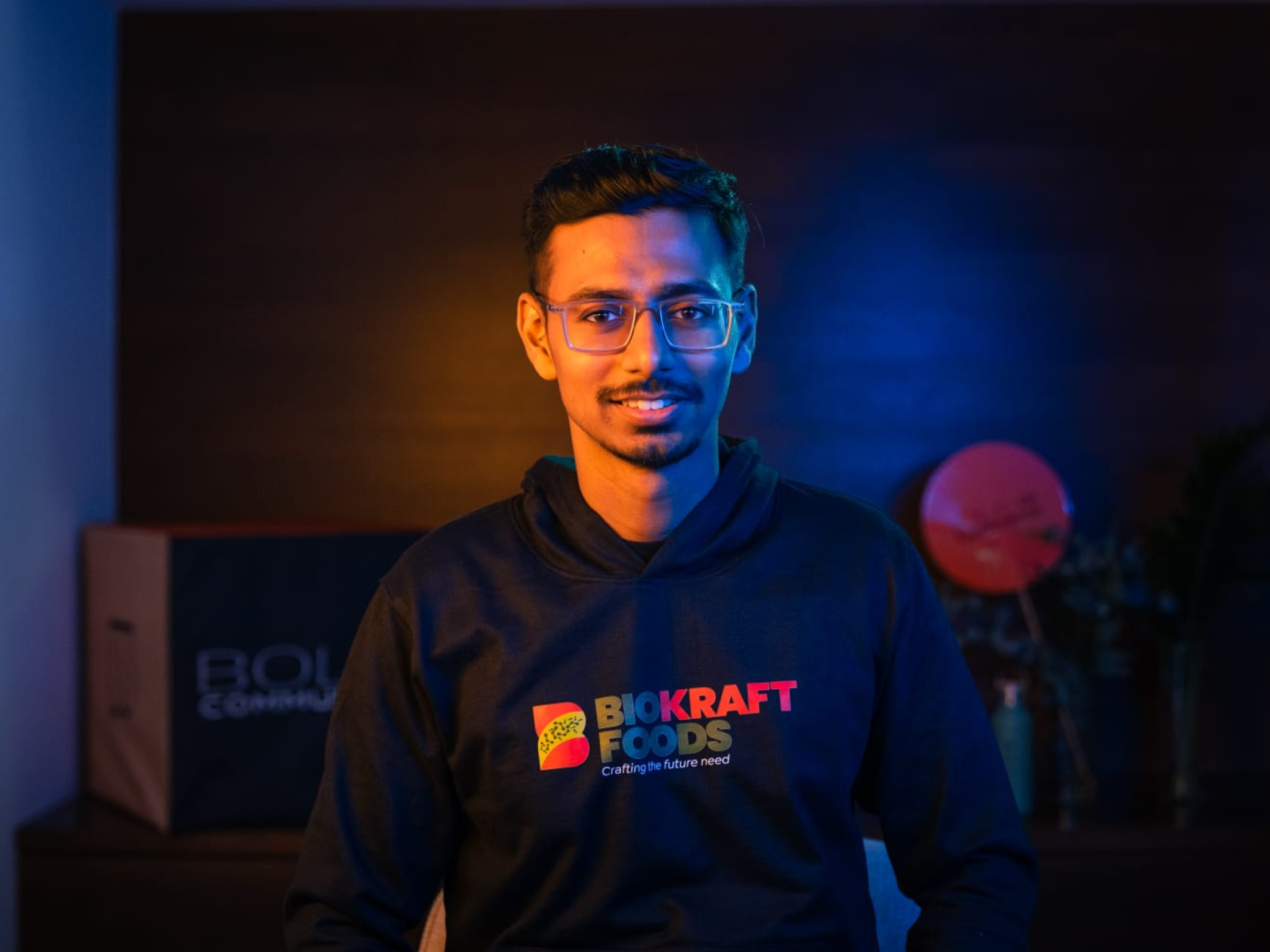India Inches Closer to Cultivated Meat as Biokraft Foods Prepares Regulatory Filing
4 Mins Read
Mumbai-based food tech startup Biokraft Foods has debuted cultured seafood prototypes in collaboration with the government, and will apply for regulatory approval for cultivated chicken this summer.
Cultivated meat is inching closer to Indian plates.
Biokraft Foods, a Mumbai-based startup, will soon make the first application to sell cultivated meat in the world’s most populous country.
“We will file for the approval of the chicken meat product, which is expected to happen in the next two months,” founder and CEO Kamalnayan Tibrewal tells Green Queen.
The development comes just as the startup has raised an undisclosed sum in a pre-seed funding round, with the deal currently under process.
Meanwhile, it has unveiled structured fish products made by cultivating the cells of native trout species as part of a project with a government-backed research institute.
Working with the ICAR-Central Institute of Coldwater Fisheries Research (ICAR-CICFR), which falls under India’s agricultural ministry, Biokraft Foods has developed fish cell lines and applied its 3D printing technology and bioink to transform these cells into whole-cut cultivated fish.
“We are working on snow and rainbow trout, a Himalayan delicacy with a huge value proposition in terms of pricing,” says Tibrewal. “Given our collaboration with ICAR-CICFR, whose primary work is around trout fishes, it made sense to proceed with that.”
Mixing cultivated fish cells with plants and algae

Trout is a high-value fish with limited availability in India, making it an expensive source of seafood. Several populations of trout are considered either endangered or threatened, and farming this fish is a resource-intensive, planet-harming process.
Biokraft aims to address these challenges through cell cultivation. Its tech platform for cultivated chicken uses 3D bioprinting to replicate the texture, taste, and structure of conventional meat, and it’s using the same tech to produce seafood.
The resulting product is said to be “structurally and nutritionally on par with conventional trout”, with year-round production without any dependence on animal farming, wild catch, or fragile ecosystems. It would further eliminate any antibiotic contamination and microplastic pollution.
According to the startup, cell cultivation has the potential to bring down prices over time through scale and process optimisation. For now, it’s still using the controversial and expensive fetal bovine serum in “certain concentrations in the medium”.
“The long-term goal is to keep it serum-free. It is too early to discuss the unit economics, but it will be priced lower than conventional trout meat,” says Tibrewal.
As for the composition of the new seafood products, he reveals: “The current cell biomass stands at 3% due to the slow doubling rate of cells, but we want to boost it up to 10% if unit economics allows. Apart from that, we are using algal and plant-based ingredients.”
Biokraft Foods to host a series of public tastings

“At ICAR-CICFR, our mandate has been to promote sustainable coldwater fisheries through advanced research and innovation,” said Amit Pande, principal scientist at the research institute.
“The collaborative development of India’s first cultivated trout product with Biokraft Foods exemplifies how academic institutions and emerging industry players can jointly contribute to the evolution of alternative protein sources. This initiative not only aligns with our vision of conserving aquatic biodiversity but also opens up new avenues for cell-based aquaculture research in India.”
The development comes months after Biokraft Foods hosted India’s first public tasting of cultivated meat, serving over 30 attendees a hybrid chicken breast with cultivated chicken cells mixed with plant-based and algal ingredients.
“A series of tasting events are lined up starting next month and will primarily focus on chicken,” Tibrewal says now. “The trout product is still under development and will need to undergo validation trials before making it public.”
The company says it is planning to open a dedicated R&D and pilot facility by the end of this year, which will act as a hub for innovation. “The plan is under development but will be implemented in a step-by-step manner,” he says.
Biokraft Foods has already been consulting with the Food Safety and Standards Authority of India (FSSAI) as the regulator establishes a framework for novel foods and aims to achieve a commercial rollout of both its meat and seafood products by 2026.
A 2024 survey found that over 60% of Indians are willing to buy cultivated meat, with 59% identifying it as an alternative to conventional meat that promotes nutritional security. And it’s not just citizens – the government has also been keen on these proteins, as evidenced by the ICAR-CICFR’s involvement.
The ICAR-Central Marine Fisheries Research Institute and New Delhi-based startup Neat Meatt are co-developing cultivated seafood in a similar project, and Singaporean pioneer Umami Bioworks has established R&D and commercialisation partnerships with two research hubs in India.



